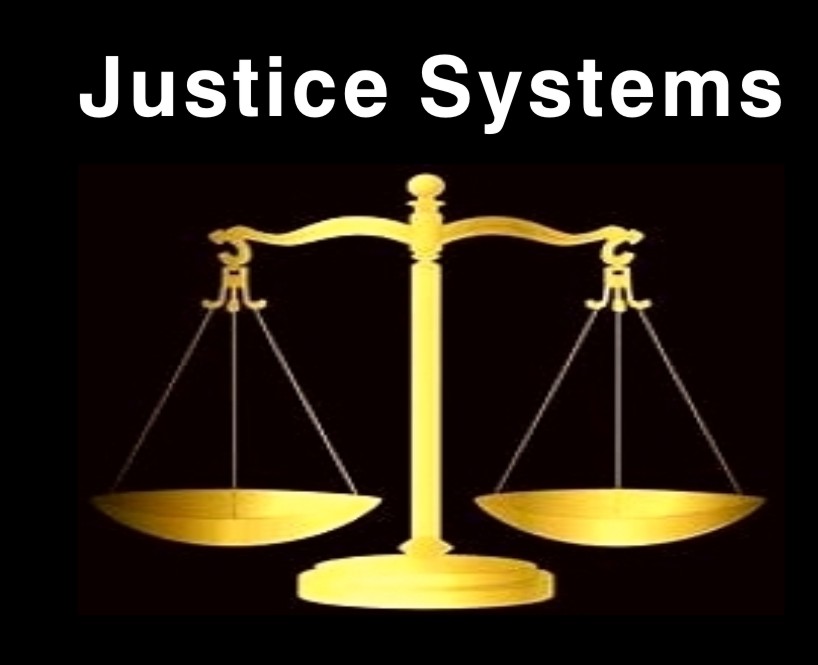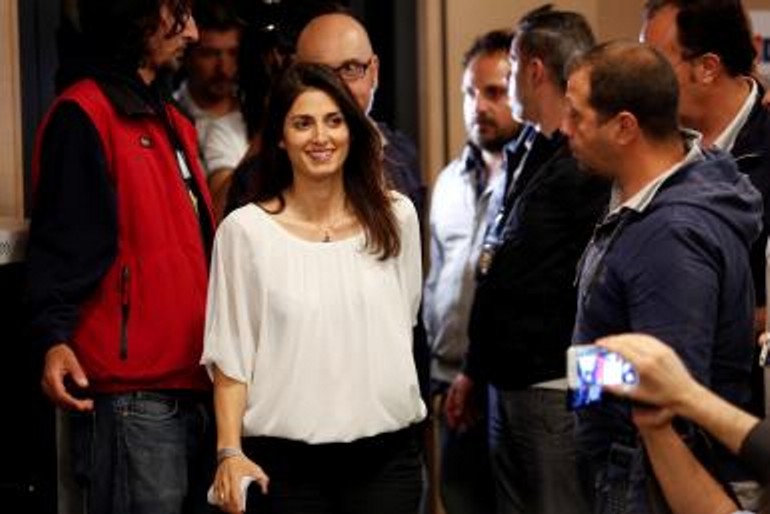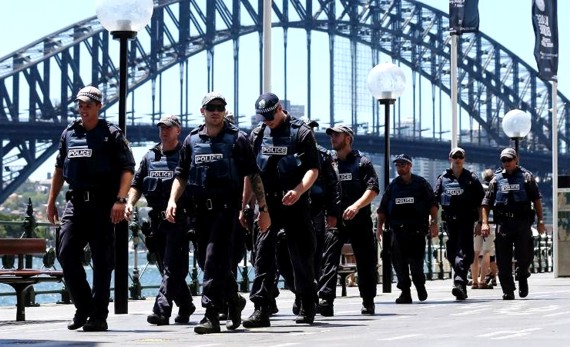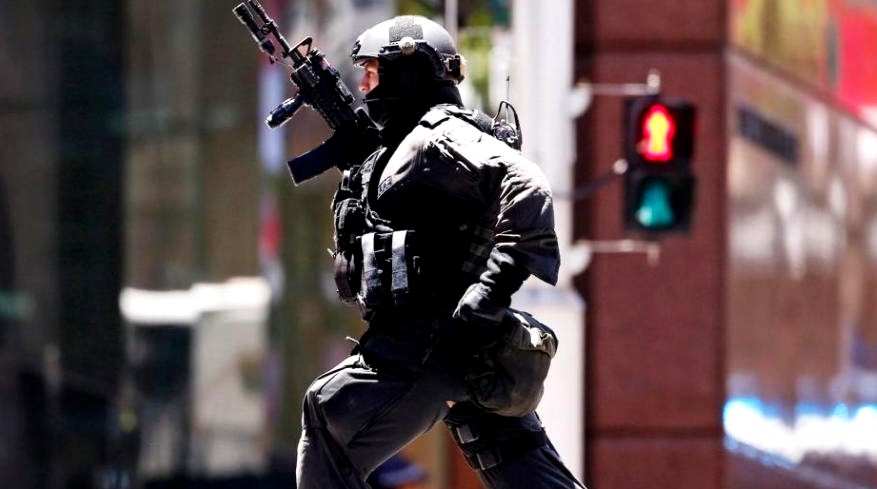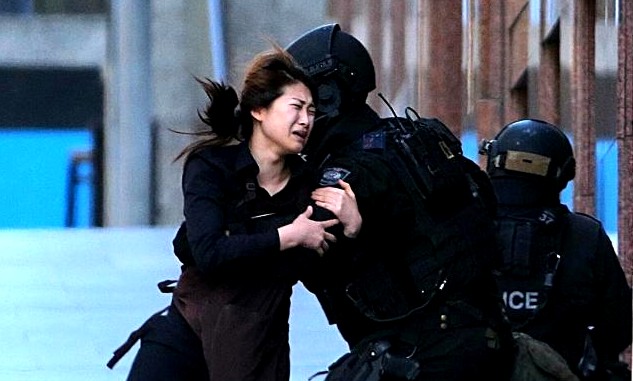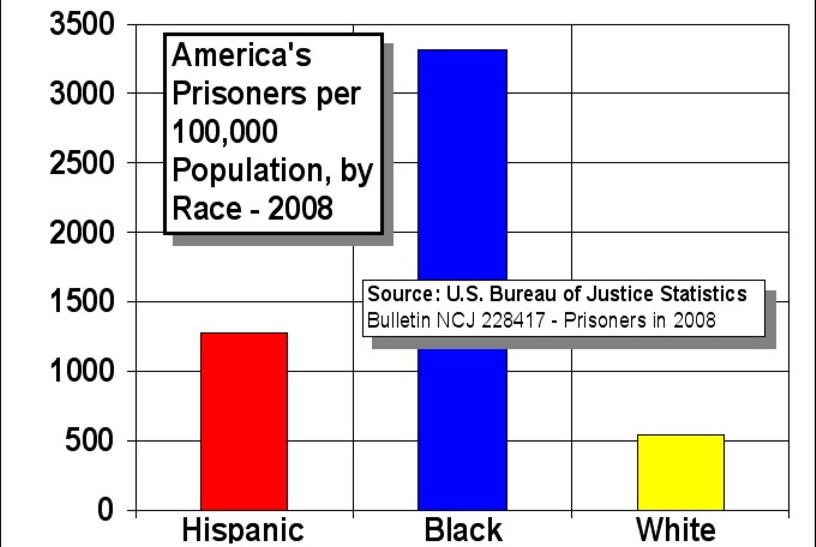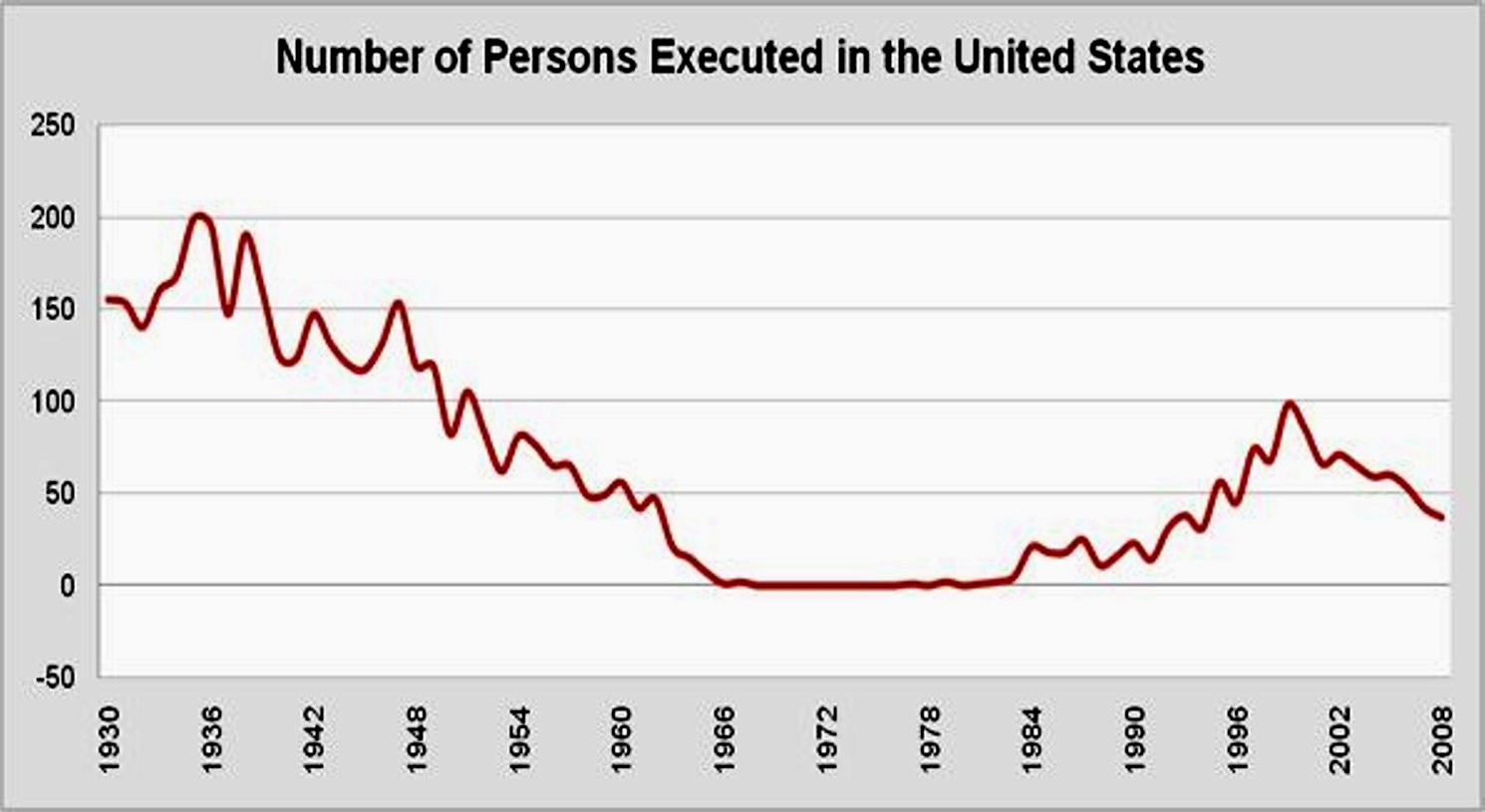
Category: Italian context
Interim Prime Minister, Which Points to Renzi Back On Top Soon & Bad News For RS & Knox
Posted by Peter Quennell
Why is this maybe not the worst outcome for Meredith’s case?
Well Mr Renzi has had more than enough of fake news which perverted both this case and his referendum.
President Obama and the faction in the US State Department hornswoggled by the Knox PR will be gone by the end of January. A President Trump already ticked off by Knox’s ingratitude will be in charge.
And Rome politics suggests neither Mr Gentiloni nor Mr Renzi would want to place any further roadblocks in front of popular legal initiatives such as this.
Fake News Provably Propagated By The “No” Parties Making Questionable The Referendum Outcome
Posted by Peter Quennell
PM Renzi is reported as being in a fighting-back mood.
A main reason is that alarmist fake news has hit Italy on the Internet big-time and he claims it may have tilted the final count and perhaps even caused the “Yes” faction to lose.
The main purveyor of alarmist fake news on the Internet might have been the Five Star Movement which runs a number of sites. See the NY Times report here.
Fake news on the Internet plagued the US election, and it may even have tilted the result. Russia is conclusively pointed to as a main propagator, if not the only one.
Trump’s National Security Advisor and his son were tweeting a conspiracy theory that has just led to an unrepentant crackpot storming into a Washington restaurant and firing off a gun.
Almost every day a new violent incident is being reported as caused by fake news. Today another Internet-infected crackpot was indicted and she may face 20 years inside.
Did fake news actually begin with mainstream media? See the video at the top which argues that it did. Meredith’s case has been plagued by a massive volume of fake news in the main media over the past nine years. Netflix continues that trend.
In Perugia the fake news has led to a number of threats of violence and angry verbal rants, some by the Netflix team themselves.
In our next post, we’ll list some of the hundreds of writers of articles and books about Meredith’s case and TV talking heads who have propagated fake news.
Italians Inside And Outside Italy Are voting Today On PM Renzi’s Proposed Reforms.
Posted by Peter Quennell
A Majority May Vote “No” In Referendum 4 December, Maybe Transforming Prospects In Meredith’s Case
Posted by Peter Quennell
The justice chunk of the huge package of reforms Italy is voting on 4 December probably appeal to pretty well everybody.
They address the awful slowness of the Italian courts and the repetitions of process steps to get it “just right” which too often result in just the opposite. They would tilt back a little toward the victim who too often gets “disappeared” just as Meredith did.
But they are chained to the parliamentary, economic and educational reforms, which PM Renzi cooked up with ex-PM Berlusconi. Maybe not such a smart idea.
They passed with only a bare majority in parliament, hence the referendum. Hence also Renzi’s promise to resign as Prime Minister if the electorate votes against them.
Those reforms are seen by young people in particular as amounting to a powergrab by the center-right and a move away from free college-level education (just when the US may be about to do the opposite).
PM Renzi may or may not have angled for the strange Fifth Chambers outcome in Meredith’s case. But he lost popularity for seeming bending to widely-suspected US arm-bending on this and some other issues even though he and President Obama seem to have not much in common.
If Renzi does go, we are told that prospects for a turnaround in Meredith’s case could become dramatically better. The politics would become right for this case to proceed.
Keep watching!
New Rome Mayor Virginia Raggi Might Ultimately Be The One To Push Justice Reforms Through
Posted by Peter Quennell

Prime Minister Renzi, previously a popular mayor of Florence, was elected on a promise to force justice and economic reforms through.
He is now being buffeted on two fronts: by Euro-skeptics and Euro-separatists, and by an invisible coalition of MPs and bad guys who really dont want those reforms to go through.
To fully understand why the justice reforms are bogged down this is a vital read though perhaps a bit harsh and in another post we will qualify it a bit.
In large part the problem is within Mr Renzi’s own Democratic Party in the Parliament which Mr Renzi is not deft at handling.
Mr Renzi’s party still leads in the polls, but the relatively new Five Star Movement is gaining fast. It stands for honesty in public life above all else.
Virginia Raggi of the populist, Euro-skeptic Five Star Movement was a relatively unknown lawyer just a few months ago.
In a landslide, she has just beaten Mr Renzi’s candidate for mayor of Rome.
Mr Renzi, who has worked hard on Angela Merkel to get all possible EC breaks, had previously announced a referendum of Italy in October to see if he can get the Italian electorate to force his reforms through.
He has said he would resign if the vote does not go his way.
If he fails and he does resign, an election could put Five Star in power, and Virginia Raggi could be a top leader in Parliament. (in Italy, wearing two hats is allowed; see Giulia Bongiorno as the classic case.)
In fact she could even end up as Prime Minister - which could result in female leadership in Germany (Merkel), England (May), the United States (Clinton) and Raggi in Italy. Norway and Poland have female prime ministers too, and Scotland has one in effect.
Well over half a billion people of the western world. Women often manage in an effective inclusionary style, which is maybe what we could use more of right now.
Given the growing post-Brexit “monkeys-are-running-the-zoo” perception in other EC countries, more EC Exits soon dont seem in the cards. Though they are very much for interactive democracy, Five Star is unlikely to stick Italy with a referendum on the EC any time soon.
But on those reforms Ms Raggi would not be encumbered with a partially-corrupt party she would have to fight. Her effecting of the reforms could have Italy riding high morally and economically in Europe and the world.
Dramatic stuff. A tragic pity Meredith misses all this.
How The Italian “Justice Tortoise” Is The Likely Winner Compared To For Example the US System
Posted by Peter Quennell
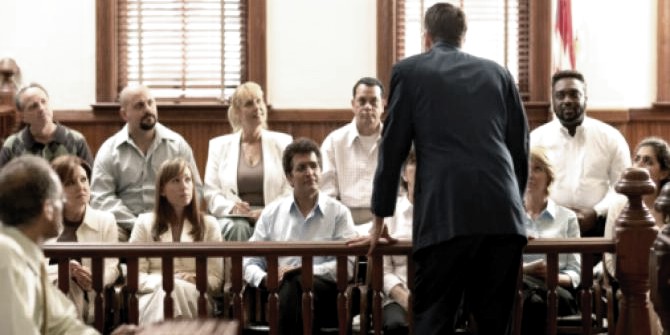
American prosecutor & jury - puzzle now over what system will make them share all evidence
Look around you.
The things you do to make a living. The running of your house and your garden. The education and general development of your children. The restaurants and metro railways and bus services. The police and military and football teams - and grand opera!
All are purposeful systems.
Purposeful systems have created all we have ever built on this planet - all wealth, all structures, all machines, all culture. Typically any educated adult has within them at least 200 significant systems AKA their skill-set: cooking a meal, riding a bicycle, driving a car, using a computer, playing basketball.
You probably dont have a manual for each of them but each time you exercise a skill you probably follow the same hard-learned steps each time you want the benefit obtained previously.
One of the world’s great problems now - starkly seen in the British argument over its future in Europe, and in slow growth in the Arab world (the world’s slowest), and in China’s economy slowing and in anyone without a college degree likely to be worse off going forward - is that we are locked into whole huge arrays of these systems at various levels (family, corporate, city, country, region) that are archaic and mostly quite wrong for our needs going forward.
And few are sure which of all of them add any real value. We are flying blind on a mammoth scale.
With regard to the US as the main economic locomotive, in the 90s two very significant things happened. The East Asia economies really rocketed - because they adopted good systems pioneered by Japan, which itself had started out with many invented in America.
And for a while at least, many Americans really began to “see” systems, and corporations started a huge push toward quality control. You can see one outcome in today’s automobile ads - cars largely sell on their reliability. Their drive systems and safety systems are what sells cars now.
Latest thinking which we often touch on here is that tweaking of any systems anywhere has a short half-life, and after that the only way to get any better is to totally replace them. Go down the road and start over. Jump to the next level through complete reinvention.
After WWII Germany and Japan and Italy of necessity all did that and for most of the time since they really benefited.
But right now, most systems in most countries are archaic and nobody - at least no political leader or candidate - seems to be able to arrive at the vision and technique vital to jumping to the next level. That in fact should really be done mostly bottom-up, with national politicians playing quite a minor role.
“Path dependencies” like the myriad systems of the common market, many very old now, are today at least as deadly to our long-term future as any aliens from other planets.
Italy is working to try to update its justice system right now and we will report on that shortly. At least in theory, it has one of the easiest tasks in the world, because post WWII its legal system was redesigned from the ground up. It had already junked bad aspects, some going back centuries.
Italy already has some of the world’s smartest juries - jury service is compulsory, so smart people cannot dodge them. And the system already has some other very positive things going for it.
Mainly what is needed is some weeding. And such reforms are made easier in Italy because (1) judges and prosecutors all follow career paths and so they are not politically competing with one another; and (2) there is the Council of Magistrates (CSM) which can be very progressive in the reforms it pushes at its level.
Overarching reform in the United States is way way more difficult because power is so diffused in the political system and the political system is so vast, and so split by ideologies, and there is no CSM.
Here is an editorial in the New York Times about curbing the massive damage being done by over-zealous prosecutors - something already taken care of in the Italian system, despite the busload of idiots claiming otherwise.
And here is a blog post calling the New York Times editorial a convoluted crackpot of a column and saying the Times should get real. At least in that way, reform aint ever going to happen.
Hop on a plane, guys. Go to Italy, and learn something.
Counterterrorism: Another Way Italian Law Enforcement Is An Effective Model For Everywhere Else
Posted by Peter Quennell

We have often mentioned these major justice-system pluses:
(1) That Italy has one of the industrialized world’s lowest crime rates and that US cities have been observing its model.
(2) That it has a very prominent and much admired police presence, and a small and much admired court and penal system.
Now Thomas Williams is reporting this third big plus from Rome in Breitbart Business News
A leading military analyst is citing Italy as a model of counterterrorism done right, pointing out that despite many factors going against it, Islamic terrorists have failed to kill a single person on Italian soil.
In the most recent issue of Nikkei Asian Review, Romanian born political scientist and military analyst Edward N. Luttwak lays out a persuasive theory explaining how Italy has been so successful in thwarting Islamic terror attempts. In a word: Italy is not afraid to deport those it considers to be a threat to national security.
In his essay titled “Doing Counterterrorism Right,” Luttwak contrasts Italy with France and Belgium, noting that although Italy is much more vulnerable than they are, it has been far more effective at stopping would-be terrorists before they strike.
So where France has been “caught by surprise again and again by terrorist attacks with many lives lost” and in Belgium “terrorists have been coming and going for years, buying military weapons with remarkable ease,” Italy has remained unscathed.
It would seem that Italy doesn’t have much going for it. It has porous borders and a Muslim population that exceeds 2 million and has played an active role in military expeditions in Islamic territories. Moreover, the Vatican is the “most iconic target in Europe,” and tops the list of objectives of the Islamic State, Luttwak observes. And yet, “nobody has been killed by Muslim terrorists in Italy.”
Italian counterterrorism has been on full alert since 9/11, Luttwak says, and its combined forces “have detected and interrupted hundreds of terrorist plots large and small, at every stage from mere verbal scheming to fully ready actions.”
So where terrorists have successfully attacked in Madrid, London, Paris, Toulouse, Copenhagen, Brussels and elsewhere, in Italy they have been foiled time after time.
Luttwak suggests that Italy’s success is all a question of method, based on the insight that the only thing that can be done to stop potential terrorists is to follow those who are suspected to be truly dangerous around the clock so that they can be arrested or killed at a moment’s notice. Since the numbers of probable suspects can be astronomical, Luttwak says, their numbers must be effectively reduced if this strategy is to bear fruit. And this is exactly what Italy has done.
State intelligence agencies throughout Europe monitor suspects, filling out reports and keeping files, but they often fail to take the action needed. The Italians, however, immediately conduct an interrogation on credible suspects, and many are sent home or arrested, if their situation merits it. Italy currently has more than 180 radical imams in prison, Luttwak notes.
Employing this method, Italian authorities are able to keep numbers of suspected potential terrorists within a reasonable range and thus are able to monitor them effectively.
Earlier this month, Franco Roberti, the head of Italy’s anti-mafia and counterterrorism task force, said he intended to protect citizens from the danger of terrorism “by adopting all the preventive measures necessary,” and noted that “we must be prepared to give up some of our personal freedoms, in particular in the area of communication.”
The fact that the Italians lump together anti-mafia operations with counterterrorism is also telling. Unlike other European states, with the exception perhaps of the UK, Italy has a long history fighting serious organized crime within its borders, coming from the different branches of the Italian mafia working in various parts of the peninsula.
The Italian interior ministry has reportedly also increased its “targeted expulsions” of persons considered to be a risk to national security. So far this year, 55 individuals have been deported and the ministry has said the numbers will only grow.
According to Italy’s Interior Minister Angelino Alfano, intelligence and counterterrorism units are reevaluating information gathered in recent months on some 56,000 people, scouring case files to see whether anything could have been overlooked.
Given Italy’s impressive counterterrorism track record, it may be about time for other European nations to sit up and take note.
Why Italy Doesnt Look For Guidance On Justice System From Foreign Smartasses
Posted by Peter Quennell
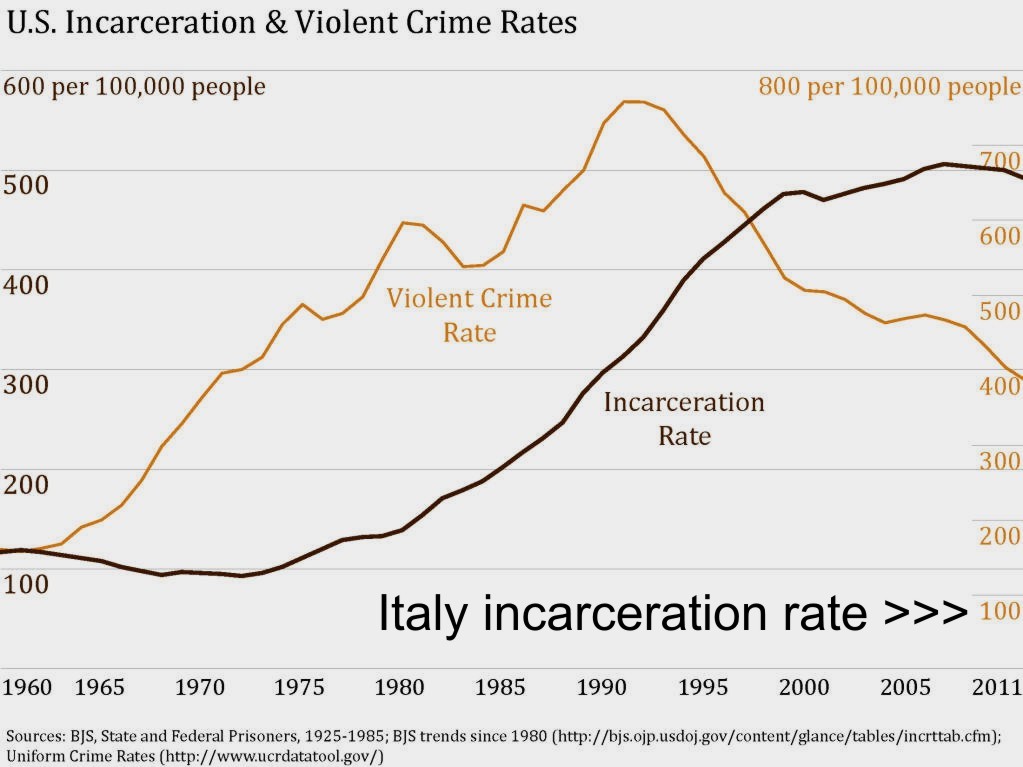
Italy is following closely the sad disarray currently obvious in the American system
Read our numerous posts setting right for example the false claims of Michael Heavey and Steve Moore. And then read this post and this post and this post and these new stories on US justice. And then answer the question below.
Michael Schwanke: Koch behind push to overhaul criminal justice system
Each year it’s estimated the United States spends almost a $100 billion on prisons. According to Mark Holden, Senior VP at Koch Industries, that’s three to four times what the country spends on education.
Holden and Charles Koch authored a letter titled “The Overcriminalization of America” and now are behind a nationwide push to overhaul the criminal justice system.
The letter points to the many federal laws created over the years. “Congress creates, on average, more than 50 new criminal laws each year. Over time, this has translated into more than 4,500 federal criminal laws spread across 27,000 pages of the United States federal code.”
“We all agree that our system isn’t working. Whether you’re a conservative, evangelical, social liberal, progressive, or libertarian there’s something for you. I don’t think there will be a lot of negative reaction to it,” says Holden speaking to Eyewitness News after addressing the downtown Rotary.
Holden says the U.S. accounts for about five percent of the world’s population, but holds 20 percent of the prison population. Most are non-violent offenders. Holden says one in three people in the U.S. has a criminal record which leads to poverty and joblessness.
Cara Tabachnick: Poll: Young Americans have “little confidence” in justice system
Nearly half of American young adults lack confidence in the nation’s justice system or don’t trust their local police to do the right thing, though that perception is deeply divided by race, according to a national poll of 18- to 29-year-olds released by Harvard’s Institute of Politics at the John F. Kennedy School of Government.
African-American youth had the deepest distrust of the nation’s criminal justice institutions, with 79 percent of those polled expressing little to no trust in their local police department to do the “right” thing.
Hispanic youth weren’t far behind, with 62 percent of those polled expressing little or no trust in their local police force. In stark contrast, just 31 percent of the white youth polled expressed little or no trust.
More than 3,000 people were polled by the Harvard Institute of Politics between March 18-April 1, on questions of criminal justice and other issues, including politics, climate change and terrorism.
Over all, there was an even split on the U.S. judicial system’s ability to “fairly judge people without bias for race and ethnicity.” About 49 percent of those polled said they have little to no confidence that the justice system can operate without bias.
Jason Fyk: Baltimore’s Criminal Justice System Is Corrupt, I Know Because I Was Imprisoned there
n 2011, I was arrested by Baltimore City Police on charges of conspiracy to commit first degree attempted murder.
You might be asking yourself, “Why? What did he do?” I took a cell phone video of a small drunken scuffle in a downtown Baltimore parking garage. I was not a participant in the fight, nor was I an instigator. Despite what the facts of the situation presented, a personal family relationship with one of the so-called “victims” took precedence over the law. What started as a typical two-sided misdemeanor became a one-sided fight for freedom. I spent 50 days in the Baltimore City Detention Center facing two life sentences, and a host of other charges mounting to well over 200 years in prison, all for simply taking a video.
I’ve seen the corruption firsthand. I’ve seen how a law enforcement agent’s personal agenda can destroy a life. I’ve seen how charges are ramped up in order to make a lesser charge stick. I’ve seen detainees entering jail with worse injuries than the participants in the fight I captured on video, all at the hands of police. I’ve also seen the corruption that resides in BCDC on my 50-day tour of the jail.
The conditions at this facility were sub-human, in some cases. Ignoring the mice, cockroaches and decaying conditions, basic necessities of life were severely lacking. The food was nearly inedible and, in some cases, hazardous. For example, the drink flavoring had a poisonous emblem on it, eggs were often brown and rotten when served, and during my stay we even lost water for four days, which meant toilets and sinks did not work. All we had was a cooler jug that was brought in to drink from. Showers were so hot (not adjustable) you could not stand in the water. I saw a detainee drop on the floor, having a seizure from withdrawal, because drugs are not administered for close to a week after arrival. My experience in jail was that of an educated observant, and what I saw was appalling. The list goes on and on.
So Italy or the USA - which country would you pick to do a crime in? Do Heavey or Moore tell you this? How many times have Heavey and Moore found justice lacking in the US? Apparently no times at all. One-note bashing of Italian justice is all that they do.
The Dangers Of Not Extraditing Convicted Felons Labeled An Explosive Threat To Other People
Posted by Peter Quennell

Above: Sydney moslems leaving wreaths- for the non-moslems killed
1. Lessons From Australia
It looks like several Australian judges may have wrecked their careers for allowing Man Haron Monis to be at large even though police said he should be denied bail.
Man Haron Monis was the former Iranian who took 17 hostages in downtown Sydney and caused the death of two others and himself. Coming to light is how many times previously the Australian justice system had treated him with kid gloves for major crimes.
Iran tried to extradite the gunman behind Sydney’s deadly hostage crisis years ago, Tehran’s top cop said, amid questions over how the self-styled cleric had found his way to Australia but not onto a watch list…
Monis grew up in Iran as Mohammad Hassan Manteghi. In 1996, he established a travel agency, but took his clients’ money and fled, Iran’s police chief, Gen. Ismail Ahmadi Moghaddam, told the country’s official IRNA news agency Tuesday.
Australia accepted him as a refugee around that time. The police chief said Iran tried to have Monis extradited from Australia in 2000, but that it didn’t happen because Iran and Australia don’t have an extradition agreement.
Australia’s Prime Minister Tony Abbott said he wanted to know how Monis had been granted permanent residency and why he had been receiving welfare benefits for years, despite being able-bodied “if not necessarily of sound mind.”
Monis had a gun licence, a rarity in Australia - and he walked free after being charged for writing letters of hate to families of dead Australian soldiers, and for having a hand in the killing of his wife.
2. The Relevance Of This To Knox
Regardless of extradition treaty situations, countries almost universally extradite convicted murderers. They dont want dangerous people to have another chance to cause deadly havoc in their own midst.
Knox is already a felon for life. If Knox is confirmed guilty of murder next March she will be a DANGEROUS felon for life.
The Italian-US extradition treaty gives a US judge no wiggle room other than to check if the paperwork is in order and then send her on her way.
But another bent judge could again throw a spanner in the works.
How dangerous is Knox? Our psychologists generally think that, untreated, she is not good news. Not a latent serial killer, or one who sits around and plots, but one who could again explosively hit back when she imagines or exaggerates slights.
More than anyone in Perugia, Meredith tried to get along with Knox. But Knox showed no sign of a learning curve. The very heavy drug use went on, the sleeping with a drug dealer went on, the dirtiness and laziness around the house went on, and the noisy sex episodes with strangers through paper-thin walls went on.
She really was the housemate from hell.
For a month or two after Meredith died, Knox was highly erratic about her role in that death, and showed an extreme eagerness to talk with the prosecution which resulted in the long session with Dr Mignini on 17 Dec.
In a move serially misinterpreted by the dimwits of the Knox brigade, the prosecution, suspecting she was both mixed up and high on hard drugs, in effect offered Knox and her team a way to a lesser count, when they said that the murder could have been a taunting attack which spun out of control.
In her book, Knox describes how the family and lawyers worked hard on Knox to destroy all elements of trust. By the summer of 2008 she was in a mood of full-blown paranoid mistrust, and all chances of a lesser charge were gone.
At trial in 2009 Knox was daffy and uncomprehending, making irrelevant interventions and really shooting herself in the foot when she took the stand. Raffaele Sollecito and Patrick Lumumba, almost the last two in Perugia to still give her the time of day, both said she was very odd.
Knox was mentally tested in Capanne Prison and apparently scored high on the psychopathic chart. The four courts hardest on Knox all knew this - the Matteini court, the Ricciarelli court, Cassation, and the Nencini court - which was a major reason why Cassation did not allow bail in April 2008.
Assuming she killed once, in what was an exceptionally barbaric attack, Knox may or may not kill again. She is certainly inciting or condoning a massive amount of dangerous hate toward Meredith’s family and toward the Italian officials of the court.
One unhinged attack has already occured - that of the disturbed Michele Moore against Dr Mignini in the Perugia court - and the British resident David Anderson has screamed at meetings and runs an incessant campaign to stir up hate. Court officials have received messages of hate, and there is a small mountain of false and dangerous accusations against them on the web.
Left untreated and unpunished, a convicted but not extradited Knox would be a killer walking loose on American streets and could continue to condone or incite violence for the rest of her life.
If Knox killed and remains loose, could she kill again or cause others to kill? Any extradition judge needs to ask as the Australian judges did not:
Do we REALLY want to find out?
Prime Minister Renzi’s Justice Reforms: One System-Change Need Strongly Suggested By Meredith’s Case
Posted by Peter Quennell

Prime Minister Renzi might be able to push some justice reforms through the Rome parliament.
After all, it was not his pals that were being plagued with investigations and charges, it was ex-PM Berlusconi’s, and business is leaning on him.
Those reforms being talked about (of a system which most Italians rightly feel proud of) seem to mostly involve economic efficiency. But it would be popular if a more-pro-victim tilt is also promoted.
The only slight pro-victim tilt at present is the presence of a lawyer representing the victim at trial. Dr Maresca in fact is representing Meredith not her family, but this small tilt toward fairness drives the Knox crazies like Bruce Fischer even crazier. It also promotes the (illegal under the laws of all countries) stalking and harassment of Meredith’s family.
A more-pro-victim tilt polls well in Italy. A clear majority of the population would like to see it. This post was about one of the fearless campaigners, a popular TV presenter who has written to us with thanks for siding with her.
Surely introducing a hurdle to all those automatic appeals (unique to Italy) that so clog the court agendas and eat up judges’ time would be a good idea.
Surely a really good idea, one which all of those tied up by the case in Italy and also many elsewhere would side with, is: No fast-track trial and automatically reduced sentence like Guede’s without a REAL confession and repentance.
Our poster Popper explained (again) in comments here on 21 October what the law on fast-track trials is for the moment, and why Guede got no special breaks from anyone except the Italian system itself for not talking.
[A deal with Guede? All such deals are illegal.] Not only illegal, impossible I would say, as not envisaged by the code for serious crimes, ie not practically possible, there are no exceptions ... in addition 1. a prosecutor cannot promise or decide anything in that system (even if it was a small crime for which plea bargain is possible, judge or court decides and can say no) 2. Mignini was not the PM responsible of the Guede appeal as the groupies should know if they had read the primary documents they publish on their, for the rest, useless website 3. Mignini got a life sentence for RG (decreased to 30 years for fast track discount) I do not believe he appealed this verdict, obviously.
So as we said many times (I repeat for newcomers and for the benefit of people in good faith, FoA in bad faith know already) Guede got this reduction as the life sentence (with fast track discount 30 years, this is an automatic formula) became 24 years given the judges of appeal gave generic mitigations equivalent to aggravations, exactly as in the first instance and appeal trials of Amanda and Raffaele. Once this factor is introduced, the base penalty for murder becomes 24 years (like Amanda and Raffaele) but there is, for Guede, the automatic reduction of 1/3 for the choice of the abbreviated trial. Result is 16 years of prison.
Amanda and Raffaele got from 24 to 28.5 and 25 for their other crimes in continuation, theft phones, simulation, transportation of a weapon, calumny to Lumumba (only Knox).
Many might live more easily with the idea of Guede getting his sentence pared down to only 16 years in prison, if only he had been made to fess up properly about what happened and make a real bid to express sorrow and remorse to Meredith’s family.
But his sticking point even now which the current law allows is that Meredith INVITED him in for sex and he was only a bystander to her murder.
Wail at his callous obtuseness all you like, but he has only gone where the system itself points him.
Judge Massei had tried to punish him additionally by reversing Judge Micheli on primary blame and placing primary blame for the fatal attack on Guede.
But that weird stretch didnt hurt him, his eventual sentence was unaffected, and it caused enormous problems down the road when Judge Hellmann was enabled to go even further and roll back the guilt of RS and AK entirely.
This is a problem Judge Nencini then had to set about correcting, which never would have even existed had Guede been forced in 2008 to fully confess and repent, in exchange for his fast-track trial and reduced sentence.
If the Italian system had forced Guede’s confession in 2008 as his part of the deal, how radically different would have been the history of this protracted process. And how radically different would have been the lives and peace of mind of Meredith’s family, left suffering now both financially and in health terms.
It wasn’t meant to be, but in this respect Italy’s is a cruel system. Please, Prime Minister Renzi, correct it. Call it the Meredith Amendment.
Why Numerous American JUDGES Favor The Supremely Neutral Italian Kind Of System
Posted by Peter Quennell
See that above at the bottom of the YouTube screen? Some $280 million has been spent since the year 2000.
Can you guess what the $280 million was for?
In fact the $280 million is funds raised and spent for judges’ election campaigns in the roughly 3/4 of all American states where such judges’ elections are held - the original intention of which was good: to get judicial choices out of smoke-filled rooms.
Sitting judges and prospective judges themselves usually dont like this fundraising, because they have to take time off to raise these funds, and pressures from donors - including bad-boy donors and in some cases defense lawyers seeking a break - can become extreme.
We have posted previously on enlightened American lawyers favoring main aspects of the Italian kind of system and on American cities now doing the same. Now we see many American judges and public-interest groups inclining the same way.
Why all judges in Italy are impartial and well-trained in the extreme (like all prosecutors) and dont have to keep their paws outstretched is that they are in a merit-based system where only their performance and not their politics counts.
We described how Italian justice system officials have to jump hurdle after hurdle in getting their cases advanced. A very demanding process in which only the best succeed.
It’s the same with their careers. They have to jump hurdle after hurdle in exams and peer assessment to advance from level to level - to make it as high for example as this revered prosecutor here.
Do such serial defamers of the Italian system as Doug Preston and Steve Moore and ex-judge Michael Heavey bother to tell you this about the Italian system? Probably not. They have never been truthful about it before.
Italian Prime Minister Renzi Will Push Measures To Speed Up Justice
Posted by Our Main Posters
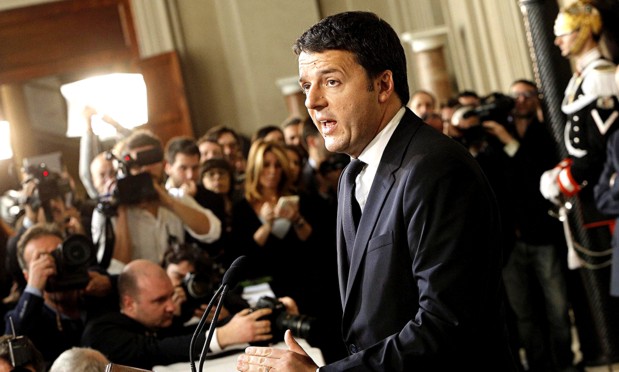
In a move popular not least among those who are part of it Mr Renzi announces moves to speed up Italian justice.
Italian justice and those who work in it are widely trusted and respected in Italy. But a very humane system designed post WWII to give those accused a level of rights unique in the world has been even further tilted over the years by politicians passing laws to aid political and business colleagues in legal trouble.
Because there are now strong economic pressures, reforms may have a slim chance of parliamentary approval. In particular convicted perps’ automatic right to two levels of appeal for most crimes could be pared back more in line with the US and UK where a judge must decide if there are any real appeal grounds.
Italian and US and UK lawyers among others have posted here on Italian justice about 40 times in the past six years. If you don’t have time for the full 40 these posts with some American comparisons provide good coverage of the key basics.
1. Click here “They Were Held For A Year Without Even Being Charged!!” How Italian Justice REALLY Works
2. Click here Why The Italian Judiciary’s Probably Less Prone to Pressure Than Any Other In The World
3. Click here Why The Prosecutors In Italy Are Relatively Popular
4. Click here Explaining How The Italian Appeals Process Works And Why It Consumes So Much Time
5. Click here Italian Parliament Is Now Moving On A Bill To Speed Up Many Trials And Appeals
6. Click here A Token Balance In The Italian System: The Voice In The Court For The Victim
7. Click here Compared To Italy, Say, Precisely How Wicked Is The United States?
8. Click here Interesting Tilts Of Marcia Clark And Alan Dershowitz Against US’s Non-Professional Jury System
9. Click here The Terrible Weight On The Victim’s Family Because The Italian System Is So Very, Very Pro Defendant
10. Click here Italy’s Advanced, Effective, Humane Law & Order System Also Adopted By City Of New York
11. Click here Italy’s Unpopular Politicians And Mafia Fellow Travelers Against Italy’s Popular Justice System
12. Click here The US Lacks Legal Authority To Decline To Deliver A Guilty Knox To Italian Authorities
How Many Extraditions Do The US And Italy Refuse? Approximately Zero, When It’s To Each Other
Posted by Peter Quennell
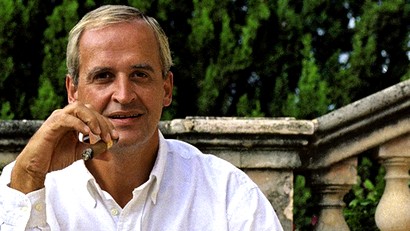
[Ex-fugitive Florian Homm above and below in front of his palatial Mallorca Spain home]
The State Department and FBI collaborate more closely with their Italian counterparts than with almost any others in the world.
Italy is a very loyal political ally to the US and has helped out a lot diplomatically and militarily around the world. The FBI and their Italian counterparts in Rome have officers permanently embedded from one another and there are dozens of transactions going on all the time..
Extraditions both ways take place without fuss at the rate of a few a year, which the State Department and Justice Department are not inclined to fight. A couple of weeks ago, the Supreme Court in Rome declined the final appeal of fugitive swindler Florian Homm and sent him on his way to the US.
Homm had many millions to pay top lawyers to fight his extradition case. But he still lost.
The only extradition requests from Italy the US doesnt fulfill are the CIA kidnaping in Milan and Air Force Dolomites case.
It is the CIA and Pentagon overtly or clandestinely exercising special military privileges that is the cause of the two standoffs. NOT the Department of State, which has made clear it is not too thrilled.
Contrary to broad confusion in the US (fed by biased stories from Colleen Barry of the Associated Press) the Florence appeal is not a second or third trial of Knox.
It is a FIRST appeal, actually filed by Sollecito and Knox, on the same lines as any American first appeal, after the previous Hellmann appeal was furtively bent, and then scathingly annulled. Knox has been in provisionally guilty status since late in 2009.
So double jeopardy absolutely does not apply.
The one REAL difference between this appeal and any American appeal, which seems over Colleen Barry’s head, is that this appeal request was automatically allowed. Any American appeal judge (except Heavey, who serially gets the hard facts wrong) would have thrown the flimsy appeal grounds out.
It may take up to a year, if Amanda Knox chooses to waste more big bucks on lawyer fees - their batting record for that is pretty dismal so far, though, and a confirmed-guilty verdict in Florence next week might be only the start of more legal strife. False claims in her book will soon see her back in court.
But it seems 100% likely that Italy will “get their man”. To a rapidly increasing number of Americans, Italy’s gain would also be the US’s gain.
The Considerable Number Of Suspected Perps That Countries Extradite Daily To Other Countries #2
Posted by Peter Quennell

[Interpol HQ is now in Central France, a new HQ is planned for outside Paris soon.
Extradition: a hardball game.
This is the latest of many posts which include this legal take explaining the gloomy prospects for Sollecito and Knox if their final conviction comes down.
Complete refusals of extradition by any countries other than Russia and China seem increasingly rare, as that can cause a rebound effect and economic retaliation in response. The United States very rarely refuses to extradite.
If anything, the US is stepping up the pace of its extradition cases - both ways. The US at federal and state level is at any one time processing hundreds of requests, and transporting suspected perps back and forth.
These are some of the high-profile extradition cases in today’s news:
The US/Italy Robert Lady case
The twists and turns in the story of the fugitive from Italian justice and former CIA chief in Milan Robert Lady were last posted on here. He scampered out of Central America back to the United States mid-2013.
But now official Washington seems to be giving Mr Lady a very hard time which may have him voluntarily headed to Italy to seek a break.
When the anniversary of 9/11 came around this year, Robert Seldon Lady was moving between low-end hotels around Miami. An international arrest warrant keeps him from returning to his home in Panama. He says he’s flirting with personal bankruptcy, fears for his life, and is “getting pretty desperate.” His marriage is broken. He blames this hard luck on his former employer, the Central Intelligence Agency
Mr. Lady helped CIA contractors and agents snatch an Egyptian Islamist off the streets of Milan and deliver him to an interrogation cell in Cairo. This so-called extraordinary rendition””one of 130 or so carried out by the Bush administration””set in train events that soured America’s relations with Italy and upended the life and career of Mr. Lady and other CIA agents.
Saying “I’m fed up with all this,” Mr. Lady has some extraordinary steps in mind to change his fate. His actions and outspokenness are going to add to the discomfiture of his former bosses at Langley over this messy episode from the early days after 9/11.
If the muddle-headed Knox and Sollecito enablers can find any solace in that, good luck. Mr Lady was a top government employee, who claims he was doing only what he was told.
The Brazil/Italy Henrique Pizzolato case
Believe it or not the former director of the Bank of Brazil has fled to Italy to ensure a fair trial.
Sentenced to 12 years and seven months in prison for bribery, embezzlement and money laundering, Pizzolato announced in a letter that he fled to have, according to him, a new trial in Italy “removed from politics and electoral motives” and in “a court not subject to the impositions of the media”.
Brazil might ask Interpol for a “red notice” which is the highest form of international arrest warrant and often has the same wanted result as formal extradition.
A red notice chills renegades’ possibilities worldwide.
In fact so tough is life on the lam under a red notice that perps often simply cave before too long, and head back to defend themselves or pay their dues without any court moves or official transport required.
The US/Italy Raoul Weil case
Finfacts reported on this case last month.
Raoul Weil, a former UBS wealth management chief, was arrested last weekend in Italy and faces extradition to the United States to answer charges of aiding and abetting tax evaders.
Weil left Switzerland’s biggest bank in 2009 after he was declared a fugitive from US justice by ignoring a criminal indictment issued in 2008. UBS was forced to pay a $780m fine in 2009 after admitting to actively assisting US tax evaders to break US law.
Several Swiss bankers and lawyers have since been indicted in the US for their alleged role in helping wealthy US citizens hide their assets from the tax authorities.
Weil is one of the most high-profile of the accused as a then head of UBS’s wealth management and he is now a temporary resident of an Italian prison, likely fearing a longer spell in a US one.
A Florida court indictment charged Weil with having a prominent role in aiding UBS’s US clients to hide around $20bn in undeclared assets between 2002 and 2007.
He however has strongly denied the allegation but would not risk defending himself in a US court.
Italy is giving Mr Weil a pretty hard time and accedes to all American extradition requests except where the death sentence might be involved.
The US/Russia gangsters case
The US is trying hard to get some Russian gangsters (okay, alleged gangsters) extradited from countries around the world and Russia is resisting this “extraterritorial application of America law”.
U.S. organized crime experts say Russian criminals working overseas often have connections within the Russian government, and that the Russian government’s defense of them is designed to keep those links from emerging in public light….
In the past six months, Russians have been a frequent target of arrest warrants executed at the request of U.S. prosecutors.
On Aug. 1, the Dominican Republic extradited 24-year-old Aleksandr Panin to stand trial in federal court in Atlanta on charges related to cyberscams using SpyEye malware, which enables the theft of online banking information. Panin is accused of stealing $5 million from U.S. banks.
In mid-August, Lithuania extradited an alleged arms dealer, Dmitry Ustinov, to stand trial in the United States for allegedly negotiating to sell restricted night-vision goggles. He faces a 20-year sentence.
Another Russian, Dmitry Belorossov, was arrested at the Barcelona airport Aug. 17 upon triggering an Interpol fraud alert. Belorossov’s extradition to stand trial in the United States is pending.
When U.S. prosecutors seized Liberty Reserve in late May, they said the company had laundered “more than $6 billion in criminal proceeds.” Liberty Reserve allowed clients anonymity and offered them a digital currency, known as an LR, to facilitate payments for criminal activity.
The US/Spain Javier Martin-Artajo case
Banker Javier Martin-Artajo now in Spain is refusing to be extradited to the United states - because the crime he is accused of took place in England. Good luck with that one. JP Morgan Chase Bank has just paid a huge fine in the US so THEY accept the crime took place there.
Italy’s Advanced, Effective, Humane Law & Order System Also Adopted By City Of New York
Posted by Peter Quennell
The main characteristics of the Italian system are (1) a large and visible national and local police presence, (2) a low crime rate even by European standards, and even more-so by American standards, and (3) a very low rate of incarceration that is only 1/6 that of the US.
Pretty well the exact opposite of what you’d suppose if you read only Frank Sforza and Raffaele Sollecito and Bruce Fischer and Saul Kassin and Steve Moore and of course Mario Spezi. Read only them, and one might be excused for thinking Italy’s is a huge, horrible system the Italian population desperately needs them to save it from.
Get a life!
An extremely misconceived campaign if the real purpose (we do wonder) is to do anything helpful for in particular Amanda Knox. The average Italian in the street likes and respects and is proud of their system. Polls repeatedly show that the institutions of that system are the most trusted and respected in Italy.
The general mood is probably toward a bit less concern about all perps and a lot more concern about all victims. But essentially the system is liked for what it is. Conspiracy theories don’t fly.
New York is now the safest big city in America. It is following a route that is not only almost identical to Italy’s - it is being watched and emulated elsewhere across the US. All of John Tierney’s important report in last Friday’s New York Times is worth a read, for this could represent a huge sea-change.
These are the openings paras.
Now that the United States has the world’s highest reported rate of incarceration, many criminologists are contemplating another strategy. What if America reverted to the penal policies of the 1980s? What if the prison population shrank drastically? What if money now spent guarding cellblocks was instead used for policing the streets?
In short, what would happen if the rest of the country followed New York City’s example?
As the American prison population has doubled in the past two decades, the city has been a remarkable exception to the trend: the number of its residents in prison has shrunk. Its incarceration rate, once high by national standards, has plunged well below the United States average and has hit another new low, as Mayor Michael R. Bloomberg announced recently. And crime in the city has fallen by more than 75 percent, almost twice as much as in the rest of the country.
Whatever has made New York the safest big city in America, that feat has certainly not been accomplished by locking up more criminals.
“The precise causes of New York’s crime decline will be debated by social scientists until the Sun hits the Earth,” said Michael Jacobson, a criminologist who ran the city’s Correction and Probation Departments during the 1990s and is now the president of the Vera Institute of Justice, a criminal justice research group. “But the 50,000-foot story from New York is that you can drive down crime while decreasing your jail and prison population “” and save a huge amount of money in the process.”
New York’s singular success has attracted attention across the country from public officials whose budgets have been strained by the prison boom. The 2.3 million people behind bars in America, a fifth of the world’s prisoners, cost taxpayers more than $75 billion a year. The strict penal policies were intended to reduce crime, but they have led to a historic, if largely unrecognized, shift in priorities away from policing.
“The United States today is the only country I know of that spends more on prisons than police,” said Lawrence W. Sherman, an American criminologist on the faculties of the University of Maryland and Cambridge University in Britain. “In England and Wales, the spending on police is twice as high as on corrections. In Australia it’s more than three times higher. In Japan it’s seven times higher. Only in the United States is it lower, and only in our recent history.”
Perugia Police Chief During 2008 Investigation Rises To Head Of National Anti-Mafia Department
Posted by Peter Quennell
[Video commentary and interview in Italian]
Arturo de Felice has served more than 30 years in various police jurisdictions. Now he becomes head of the anti-mafia department in Rome.
He was in charge at the Perugia questura up to August of 2008 when the crime was being jointly investigated with experts from Rome.
Arturo de Felice made the anouncement to the media and a nervous Perugia on the day after interrogators caused Knox’s and Sollecito’s alibis to separate. He announced to the media that Sollecito had admitted lying and Knox had admitted to being at the scene - with Patrick Lumumba, though, not with Guede.
He indicated that police were surprised at how quickly Knox crumbled, and this surprise was confirmed by interrogators themselves and an interpreter at the trial in 2009. From the 7 November Daily Telegraph.
The police said today that Knox’s confession could be the key to solving the case.
Mr De Felice said: “She crumbled. She confessed. There were holes in her alibi. Her mobile phone records were crucial.”
He said Knox’s claims that she was elsewhere had been demonstrated to be false. The police found text messages on her phone from Lumumba, fixing a meeting between them at 8.35pm on the night Miss Kercher died.
The police also said that Sollecito had cracked, and admitted he had lied. Tomorrow morning, all three will appear before a judge to have their arrests confirmed before they are formally charged with non-premeditated murder and participation in an act of sexual violence.
Of course, it was not an especially helpful crumbling by Amanda Knox. Lumumba was released after a lot of time and effort was wasted when a palm print at the scene was identified as that of Rudy Guede.
However in her two written confessions Knox was pretty nasty toward Patrick. Then she let him languish in prison for several weeks. And as Fly By Night posted on the PMF forum last year, Knox had admitted to crimes, if not to murder.
1. She provided the access for a murderer to enter the cottage.
2. She heard thuds and a scream, and imagined what was happening.
3. In her drunken stupor, she failed to come to Meredith’s aid both during and after the murder.
4. She actively covered up the murder by failing to report it or otherwise detail her actions for 4 full 24 hour days following the murder.
In December Knox was interviewed by Mr Mignini in the presence of her attorney and was asked her why she had implicated Patrick. She refused to answer.
At trial she raised no objections to any testimony from those present at the interrogation that she spontaneously fingered Patrick, and she admitted under interrogation that it was her idea.
Mr De Felice comes from Calabria in the deep south (where Dr Galati also comes from) and has headed many mafia investigations in his career. This is dangerous work and those who do it tend to be widely admired in Italy.
CIA v. State Department: A Significant Development For The Perugia Case?
Posted by Peter Quennell

As expected the Supreme Court of Cassation has upheld kidnapping convictions against 23 CIA operatives.
The landmark case dates to Feb. 17, 2003, when Hassan Mustafa Osama Nasr, a radical Egyptian cleric known as Abu Omar [image below}, walked out of his Milan apartment in broad daylight and vanished.
talian authorities used cellphone records made at the time and location of the abduction to determine that CIA officers snatched Abu Omar, drove him to nearby Aviano Air Base and flew him to Egypt. According to Italian court documents,
Abu Omar was beaten and subjected to electric shock in a Cairo prison. He was later freed.
The significant development for Meredith’s case is that the State Department had refused to organize diplomatic immunity with Italy for any of the 23.
Now at least one of them, Sabrina De Sousa (image at top with her lawyer), is suing the State Department for not having stood by her in retroactively organizing that diplomatic immunity.
All 23 could now be the subject of requests for extradition to Italy to serve out their six-year sentences, and if the US Justice Department refuses to comply they could be the subjects of worldwide arrest warrants via Interpol.
That could mean the end of their operational usefulness in the CIA and conceivably prevent any of them ever traveling outside the US again in their lifetimes.
Why have the CIA and the State Department seriously parted company here? Well, their mandates are almost polar opposites.
The State Department and its Embassies and the very considerable American presence throughout the United Nations tries hard to get along with friendly nations, and Italy is probably one of its top half-dozen friends.
The CIA on the other hand is charged with using fair means and foul to fight back against terrorism worldwide, and sometimes its practices contravene the best interests of diplomacy and the local law.
Here the CIA is coming out the clear loser and State is sweetly sitting on its hands and not upsetting Italy in any way.
Cables released so far by the State Department under the Freedom of Information Act suggest that State and the Rome Embassy really didnt ever lift a finger to subvert Italian justice on behalf of Amanda Knox.
Here’s betting more of the same - no action by State - as the Cassation appeal comes alive. And no standing in the way of an extradition request for Knox if Cassation decides Judge Masssei got the trial right.

Compared To Italy, Say, Precisely How Wicked Is The United States?
Posted by Peter Quennell
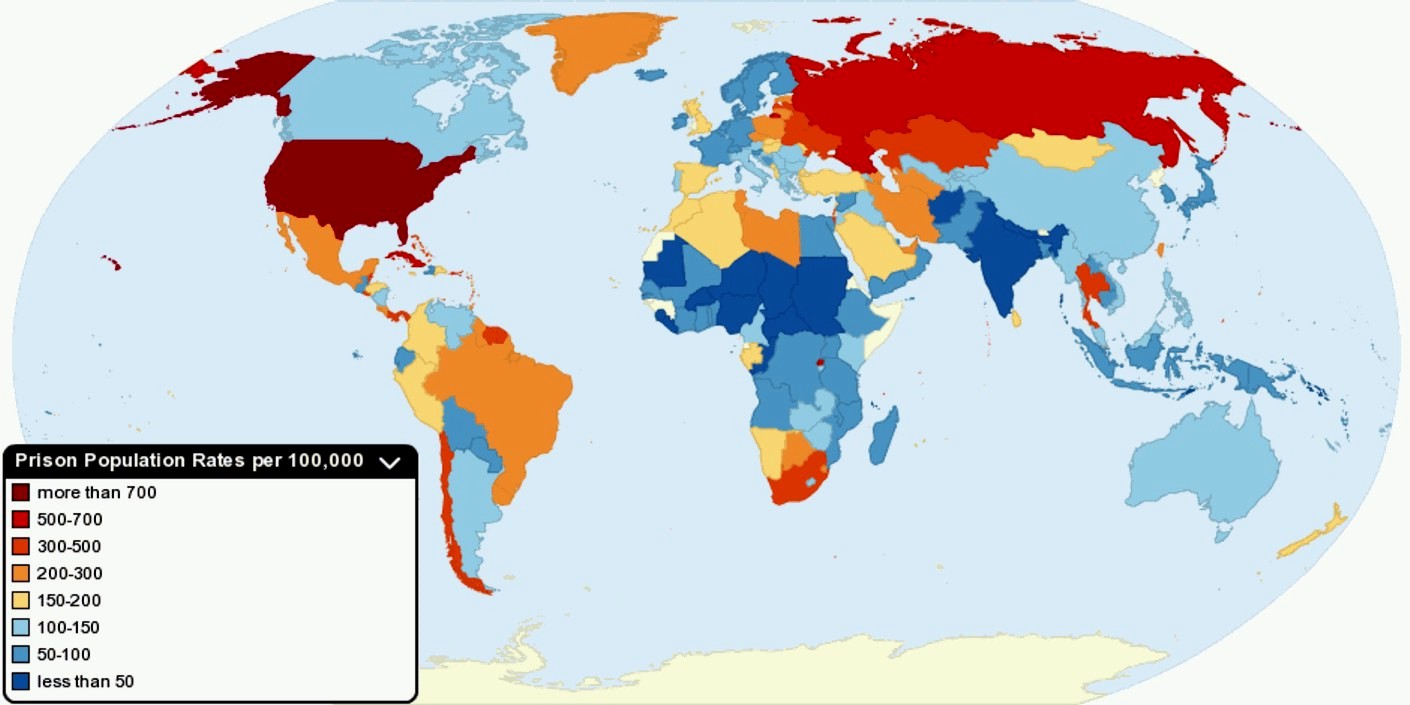
Please click above for a chart we can all read.
Okay. According to this proportional comparison of prison populations, the US is about seven times as wicked as Italy.
We have often remarked that Italy’s crime rate is low, the three mafia families (Sicily, Calabria and Naples) are mostly fading, and the justice system is one of the most cautious - conviction rates are infuriatingly low for the suffering families of victims, but in a forgiving Catholic nation rates of incarceration are unlikely to jump any time soon.
The American incarceration rate in sharp contrast has for a decade led the rest of the world, and it increased every year for nearly 30 straight years from the arrival of President Reagan to the departure of President GW Bush. Its prison rate is ahead of Russia’s, with its mafias and corruption and poverty, and ahead of China’s, with its large population of political prisoners.
Finally, however, the American incarceration rate and execution rate are both now headed downward.
Factors that had been keeping incarceration rates high included the 1980s-1990s drug wars, the estimated 12-15 million illegals, the estimated several hundred million private guns, the law-and-order hard line of many politicians and the Supreme Court, the elections of many sheriffs and judges and district attorneys based mainly on a law-and-order hard line, the part-privatised for-profit prison system, and distinct racism (see graphs below) in who goes to prison and who doesn’t.
Factors that are now pushing incarceration rates down include a major drop in all crime rates, the liberalization of US society as it gets richer, the pressure on government budgets, the easing of certain drug laws, the proofs from DNA that police do not always get the right perpetrator, Obama-administration investment in re-entry programs and more effective methods of parole and probation, and the continued push of humane people to radically change things for the better.
Executions were put on hold by the Supreme Court for some years. You can see from the last graph below that after that ended there was something of a surge in executions, but the numbers are sinking down again quite sharply (now at about 30 a year) and execution might be a thing of the past by 2020.
Wow! In matters of crime and punishment the United States is now starting to converge upon… Italy!
The President Of The Italian Republic Lights A Small Fire Under The Prime Minister
Posted by Peter Quennell
[This post was edited Friday to replace an image with this new video report from Rome]
As they are from separate parties, etcetera, etcetera, they are known to not see eye-to-eye.
We posted here on one role of President Giorgio Napolitano. The ultimate enforcer of the Italian constitution with special reference to the justice system.
On the whole he sides with Cassation and with victims and against political meddling. .
He is also entitled to speak out on Italian politics and the management of the economy. The prime minister seems to be moving on the lines his European partners and global markets would like - but only verrry slowly because of his sea of political and legal troubles.
The president has just drawn attention to this. See this video and report from the BBC.
Italian President Giorgio Napolitano has expressed his frustration at his government’s failure to cope with the country’s worsening debt crisis.
Despite pressure from Italian business and the European Central Bank, Prime Minister Silvio Berlusconi has repeatedly delayed announcing measures to stimulate economic growth.
Speaking ahead of an EU summit, Mr Napolitano said the government had a responsibility to end the delays and take decisive action.
One of a bunch of monkeys has just been lifted off Mr Belusconi’s back. The New York Times reports that a Milan judge has decided not to indict him for tax fraud.
That leaves “only” three pending trials in Milan and his party’s battle with the legal system (which most Italians respect more than any other public institution) is not likely to cool any time soon, even if it is not the most popular or saintly of wars.
Mr Berlusconi takes quite a whack in a polemical new book The Liberty of Servants: Berlusconi’s Italy by the Italian writer Maurizio Viroli . The American monthly Foreign Affairs has an extended excerpt.
Global stockmarkets are already awarding the pending Italian economic measures a small plus. In the stock chart below (set for one year) the red line is the American index (average), the green line is the German index, and the blue line is the Italian index.
Click for a larger image. You can see the Italian uptick in the past several weeks. If you want to follow this chart dynamically in future, save this Yahoo Charts link. You can adjust the time period to suit you.
Italian stocks do remain down 60% from this time three years ago. That could change fast if the current measures work. On global stockmarkets Italy often outperforms Germany and Japan.
Italian Parliament Is Now Moving On A Bill To Speed Up Many Trials And Appeals
Posted by Peter Quennell
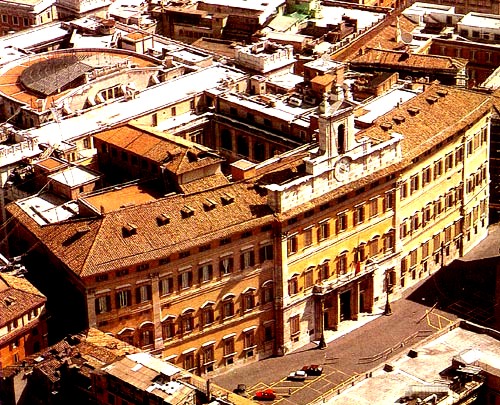
Our poster Commissario Montalbano described back here how the surfeit of caution in the Italian legal system leads to protracted delays.
This proves tough on Italian police, prosecutors, judges and perps. It is especially tough on the families of victims, as Meredith’s father John Kercher explained here, here, and here.
Now Andrea Vogt reports on a promising if somewhat controversial reform bill already passed by the Italian parliament’s lower house which may speed up many trials, eliminate others, and cut down on the mandatory appeals.
The key provision of the new law is to reduce the time that trials take in Italy. Most Italians support this: they are fed up with a judicial system that is inefficient and moves at a snail’s pace.
There are millions of backlogged civil and criminal trials, which, when they finally get to court, can drag on interminably. Even the European Court of Human Rights has condemned Italy for its court delays…
Popular move on the whole, but it could also knock out a lot of seemingly deserved trials, and weaken judges by making them liable to civil actions.
How This Cable Car In The Dolomites Hangs Over The Trial In Perugia
Posted by Peter Quennell
The Dolomites (image below) are a spectacular range of mountains east of the Alps in north-east Italy.
In 1998 a squadron of American Prowlers (image at bottom) based in Italy as part of the US NATO presence was roaring up and down those valleys, when one cut the cable of the cable car shown above. Twenty people in a gondola died when it crashed to the ground 350 feet below.
The US military has a huge presence in Italy (scroll down to “Conditions in Italy”) and good US-Italian relations are extremely important as a result. But in this case, the airmen were yanked back to the US, under NATO rules, tried by other military officers - and found not guilty of anything except destroying a videotape.
Outrage in Italy and across Europe and even in the US was intense. There have since been very, very few US interventions in any judicial process in Italy.
Now suddenly there is a new US intervention and Italian emotions are getting stoked.
If the FOA campaign ever thought the US government would spring Amanda using political pressure, they could not have picked a worse country in Europe to ridicule and try to strong-arm.
